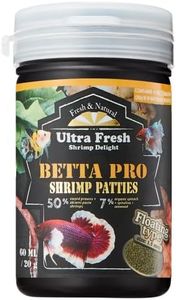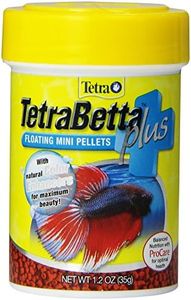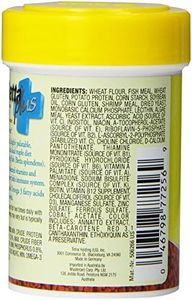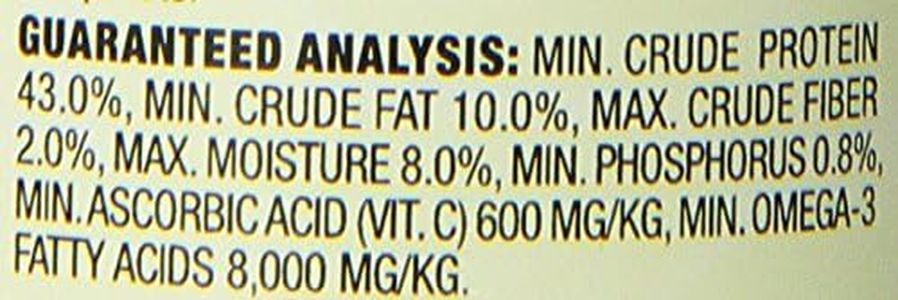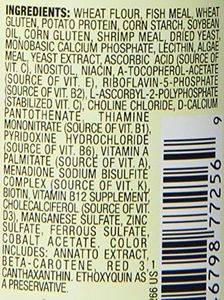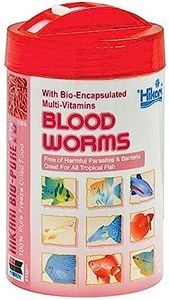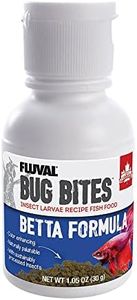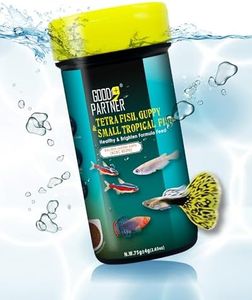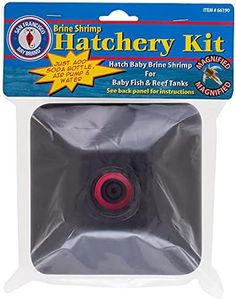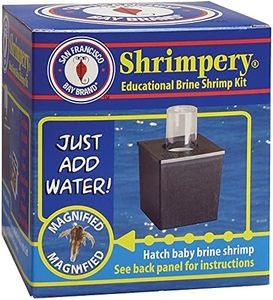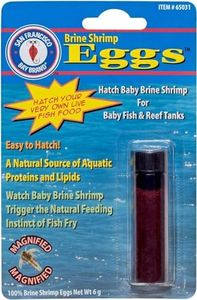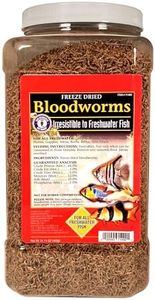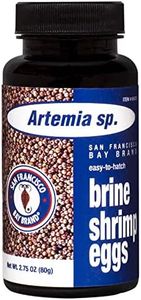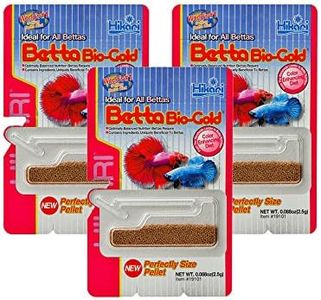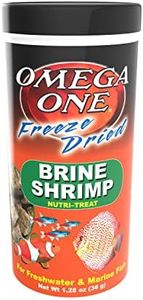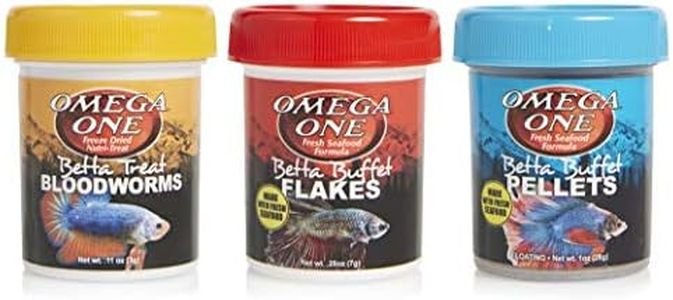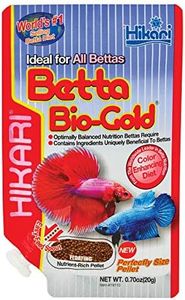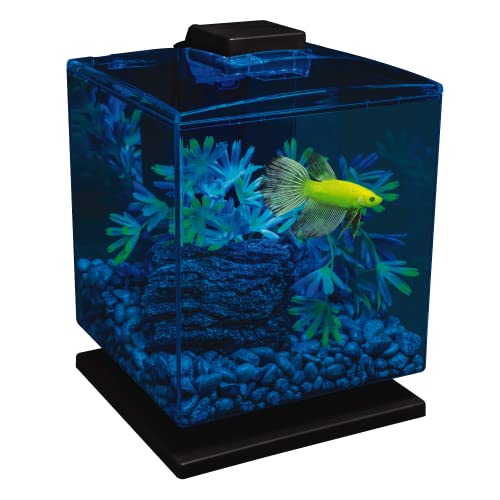10 Best Food For Betta Fish 2025 in the United States
Winner
Ultra Fresh Betta Fish Food, Pro Shrimp Patties, 50% Sword Prawns + Akiami Paste Shrimps, All Natural Protein, Rich in Calcium, for Betta's Healthy Development and Cleaner Water, 0.7 oz
The Ultra Fresh Betta Fish Food is rich in protein, with 50% of its content coming from sword prawns and akiami paste shrimps, which are excellent sources of natural protein. The high-quality ingredients include vegetables and seaweed, offering a balanced 8:2 meat to vegetable protein ratio that tends to appeal even to picky eaters. This food promotes healthy growth, enriched with various vitamins and rich in calcium and vitamin D for better bone health.
Most important from
6895 reviews
Top 10 Best Food For Betta Fish 2025 in the United States
Winner
9.8 score
Ultra Fresh Betta Fish Food, Pro Shrimp Patties, 50% Sword Prawns + Akiami Paste Shrimps, All Natural Protein, Rich in Calcium, for Betta's Healthy Development and Cleaner Water, 0.7 oz
Ultra Fresh Betta Fish Food, Pro Shrimp Patties, 50% Sword Prawns + Akiami Paste Shrimps, All Natural Protein, Rich in Calcium, for Betta's Healthy Development and Cleaner Water, 0.7 oz
Chosen by 1313 this week
Fluval Bug Bites Betta Fish Food, Granules for Small to Medium Sized Fish, 1.05 Oz.
Fluval Bug Bites Betta Fish Food, Granules for Small to Medium Sized Fish, 1.05 Oz.
GOOD PARTNER Purify Series for Tetra Fish Food, Small Tropical Sinking Pellets, Suitable for Betta, Guppy Fish, All Natural Ingredients, Balanced Composition of Fish Feed, 2.65 oz (Pack of 1)
GOOD PARTNER Purify Series for Tetra Fish Food, Small Tropical Sinking Pellets, Suitable for Betta, Guppy Fish, All Natural Ingredients, Balanced Composition of Fish Feed, 2.65 oz (Pack of 1)
Omega One Freeze Dried Blood Worms, 0.96 oz
Omega One Freeze Dried Blood Worms, 0.96 oz
Our technology thoroughly searches through the online shopping world, reviewing hundreds of sites. We then process and analyze this information, updating in real-time to bring you the latest top-rated products. This way, you always get the best and most current options available.

